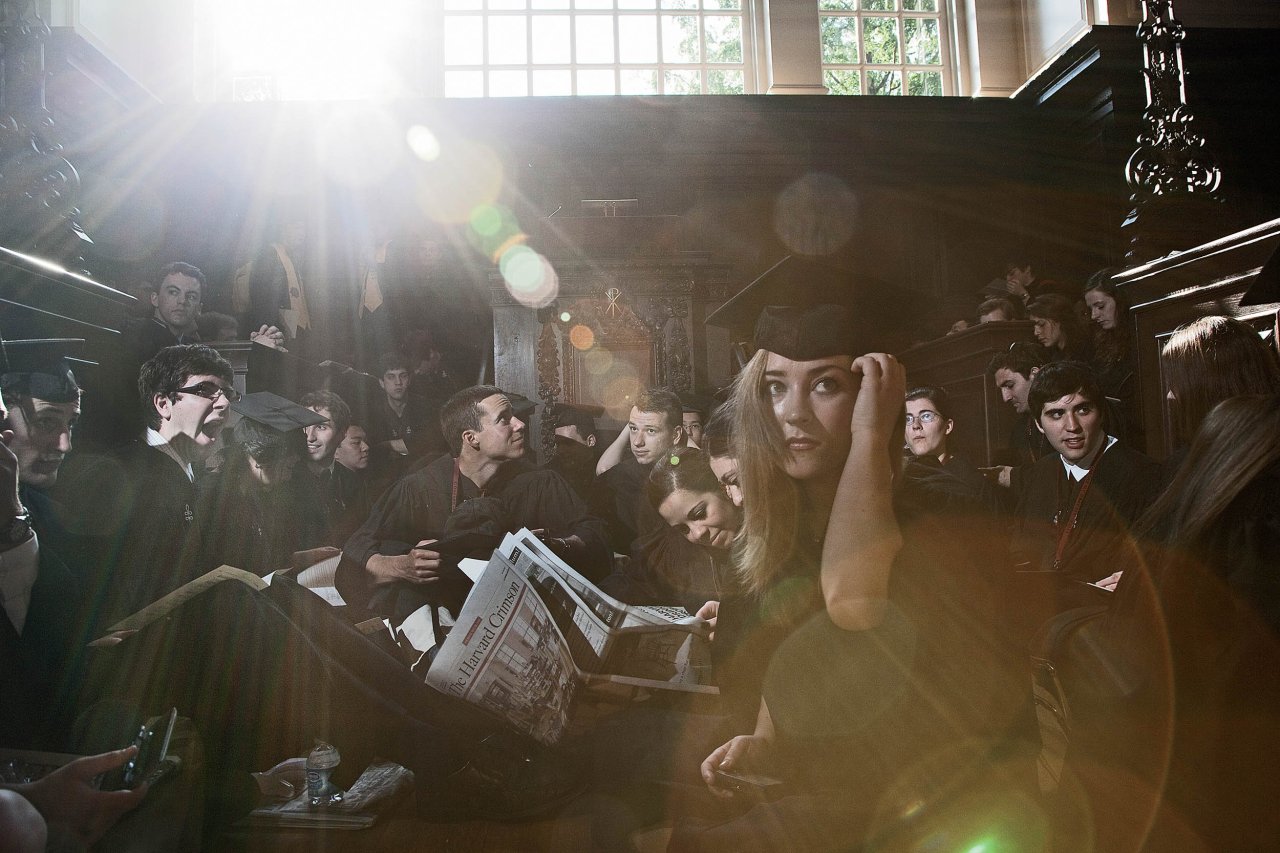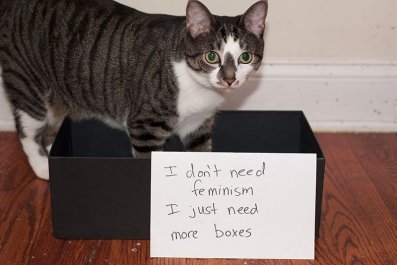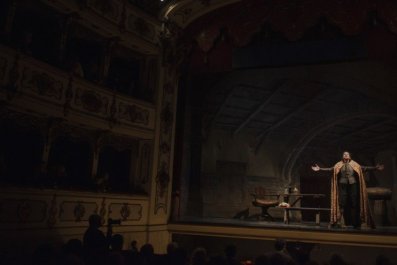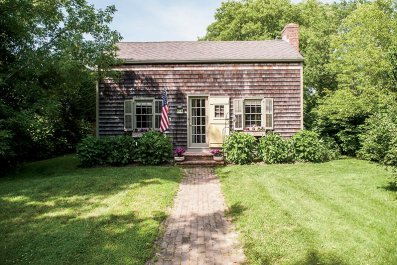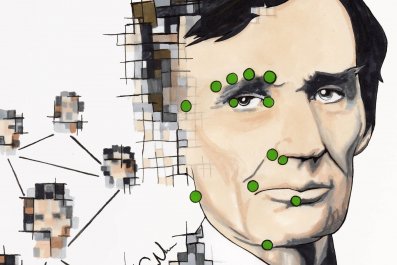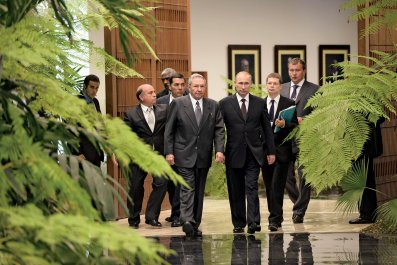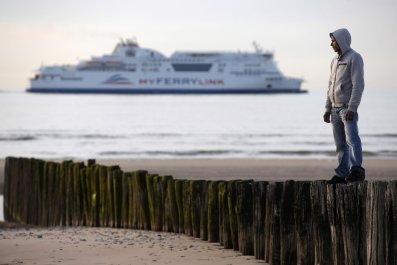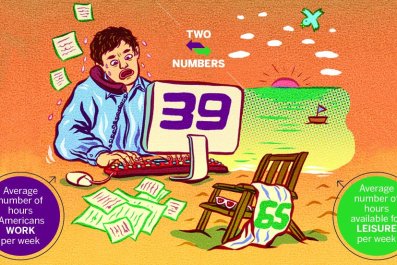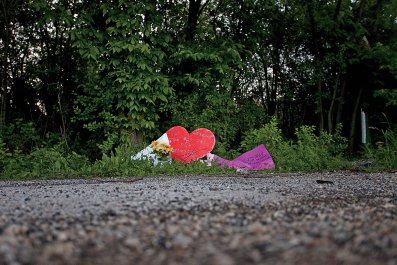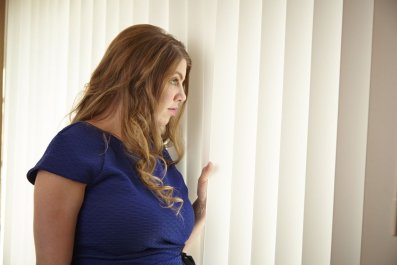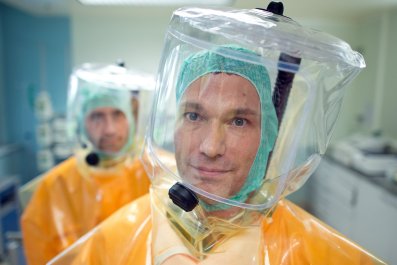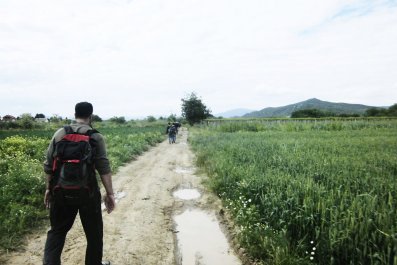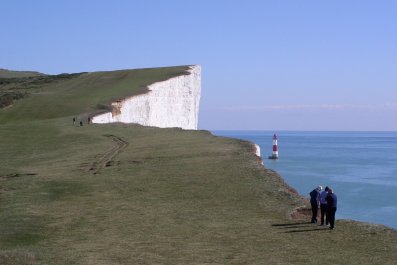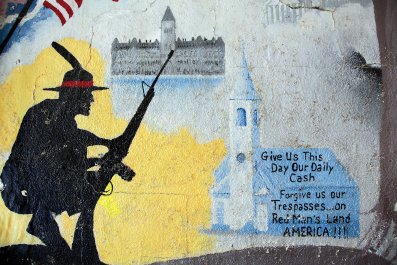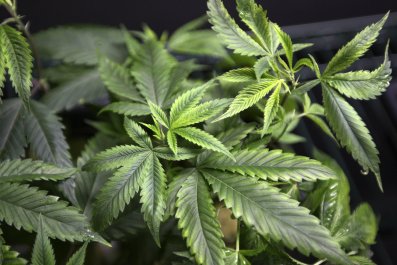In 1911, the fictional Dink Stover arrived at Yale, "leisurely divested himself of his trim overcoat" and coolly strolled into campus life. "He had come to conquer," writes Owen Johnson in the 1912 novel called Stover at Yale, "and zest was in his step." Stover's zest has little to do with intellectual inquest, as Johnson makes perfectly clear: "Four glorious years, good times, good fellows," this was in store for Stover. Much of the novel is indeed concerned with Stover's jockeying for social position, even if, by the end of the affair, he tires of the "unnecessary fetish" of the secret societies that defined life in New Haven for much of its tercentenary existence.
William Deresiewicz arrived at Yale nearly 90 years after Stover did, a real person who reveled in fictional things: an English professor. He taught in Yale's vaunted English department for the next 10 years. In the half-decade since, he has been writing about higher education, most notably in The American Scholar, where two of his essays, "The Disadvantages of an Elite Education" and "Solitude and Leadership," garnered the kind of attention that suggests that he'd hit not a raw nerve but a diseased organ. Now comes his book Excellent Sheep: The Miseducation of the American Elite and the Way to a Meaningful Life, whose title makes crushingly clear just what Deresiewicz thinks of Johnny Harvard and his buddies in the Ancient Eight. To say the least, Stover's "great university dedicated to liberty of thought and action" has become, in this telling, little more than a funnel into the junior ranks of Goldman Sachs. An excerpt from Deresiewicz's book was recently a New Republic cover story, illustrated by a burning Harvard flag. "Don't Send Your Kid to the Ivy League," that cover said.
Two books written by Ivy League graduates bolster the arguments in Deresiewicz's impassioned philippic.The Short and Tragic Life of Robert Peace was written by Jeff Hobbs, a young novelist and Yale graduate. Peace was Hobbs's roommate and his friend. After the two men graduated in 2002, Peace returned to East Orange, New Jersey, where he resumed the drug dealing that had netted him an estimated $100,000 at Yale. But East Orange, which bleeds into Newark, is no verdant college quad; Peace ran afoul of a local gang and was shot dead in 2011.
Andrew Lohse is also from New Jersey, though from a middle-class family, not a destitute one like Peace's. His grandfather attended Dartmouth, as did his older brother. Lohse went to Dartmouth, too. There, he descended into the basement of Sigma Alpha Epsilon and wallowed in its beery muck before emerging, somewhat improbably, as a self-described "frat whistleblower" who has also railed persuasively against the allure of corporate jobs for Ivy Leaguers. His memoir, Confessions of an Ivy League Frat Boy, is based on a Rolling Stone article of the same name by Janet Reitman that chronicled Lohse's tortuous search for Augustinian redemption.
Together, these three books make a persuasive case that the Ivy League is, collectively, a moribund institution, a triumph of marketing whose allure far exceeds its social utility. After all, if our finest colleges can neither turn relatively privileged men like Lohse into models of society nor vault someone like Peace out of the urban destitution from which he'd so nearly escaped, then what are they good for? Perhaps what Will Hunting says to a pompous Harvard scholar is really true: "You dropped a hundred and fifty grand on an education you coulda' picked up for a dollar fifty in late charges at the public library." Except, of course, an Ivy League education has become even more obscenely expensive in the 17 years since Good Will Hunting romanticized Southie autodidactism.
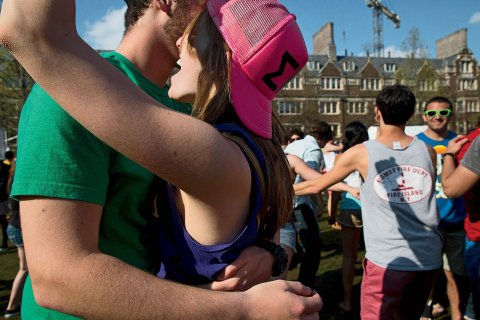
William Deresiewicz comes by his unrelenting skepticism honestly. With three degrees from Columbia, including a doctorate in English, and a decade at Yale, he probably knows more Ivy Leaguers than any person should have to in a single lifetime. They are, to him, "anxious, timid, and lost, with little intellectual curiosity and a stunted sense of purpose," achievement machines who "have been conditioned, above all, to jump through hoops."
These are subjective observations, ones that might seem unnecessarily procrustean, even offensive, to a Cornell graduate who reads them as she works to alleviate malaria in Kenya. Deresiewicz leans heavily on anecdotes ("A friend who taught at Amherst mentioned…"; "When a student at Pomona told me…"), which may rankle some in this Gradgrindian age of ours. Then again, Excellent Sheep is a refreshing departure from arguments that are nothing more than a joyless succession of unimaginative assertions that begin, "A recent study has found…" There is more to heaven and earth, I should hope, than what is known by a pair of Berkeley sociologists. Moreover, Deresiewicz appears to have had the confidence of a great number of students and academics. He might as well use it. And he does, often to great effect, as when a former student tells him: "You cannot say to a Yalie 'find your passion.' Most of us don't know how." No study can capture such dismay.
The numbers he does cite are damning. For example, 36 percent of Princeton's class of 2011 went into finance alone, while the twin sirens of finance and consulting claimed about half of Harvard's class of 2010. Meanwhile, the English major is becoming an extinct species, its incidence having declined to only 3 percent in 2011-2012, less than half of what it had been 40 years earlier. Economics, conversely, is as popular as beer, topping all majors at Harvard, Dartmouth, Princeton and Penn. In what Deresiewicz calls "a stunning convergence," it was the top major at 26 of the nation's top 40 universities and colleges.
There's just one problem with this: Deresiewicz writes under the implicit assumption that his readers agree with him about what constitutes a "meaningful life" and are, in fact, hubristic enough to judge whether the life of another lonely, confused and bewildered human has "meaning" or not. Though he uses the word on nearly a dozen occasions in the book, it is never quite clear what he means by it, even if his lament for English majors is a pretty good clue. For the most part, he defines meaning in negative terms, with a career at Silver Point Capital or Cadwalader, Wickersham & Taft being about the least meaningful thing you could do with your Brown education. Writing think pieces for Slate is somewhat more meaningful; urban gardening in Detroit significantly more so. As far as Excellent Sheep is concerned, making money and living an examined life are entirely incompatible.
I am less sure of that. I can't believe that all those exceedingly intelligent graduates of Princeton have been duped into working for McKinsey and Google. Some may like the corporate life. Some may need the money. Some may just do it for a couple of years, then go teach middle school in Cleveland. Yes, as Deresiewicz points out, a good number of the men who ruined our economy have an MBA from Harvard. But such guilt by association is simply too simplistic; there are plenty of bastards, I suspect, with creative writing degrees.
I am left thinking, at last, of an old friend whom I'll call Vasily. We both emigrated from the Soviet Union, both wound up in Connecticut, both went to Dartmouth. He first told me that he wanted to be a corporate lawyer when we were about 13. Not a criminal litigator, mind you, but a corporate lawyer. He already knew! What was this but Socratic self-reflection of the highest order? At Dartmouth, he joined a fraternity, whiling his time away drinking beer and earning a 3.9 GPA in the process. He majored, yes, in econ. And loved it. Then, on to Harvard Law and a prestigious firm where he became exactly what he always yearned to become. He had a passion and he fulfilled it, in precisely the way Deresiewicz says we all should. Only that passion has to do with tax law, or whatever. We don't keep in touch, but as far as I can tell from his Facebook updates, Vasily is happy. Mazel tov to him. Whether he leads a meaningful life, I can't judge. Nor can anyone else.
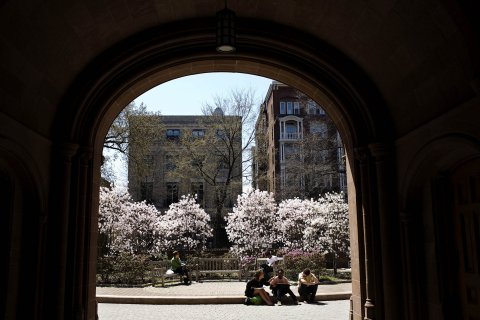
Then again, I can concede that Vasily might just be an exception, one of the happy few. You might certainly think as much after reading Lohse's Confessions of an Ivy League Frat Boy, in which he details how he "worked hard for many years to have the privilege of being vomited on in a frat basement" by the same future Masters of the Universe whom Deresiewicz has come to despise.
Lohse became something of a public figure a couple of years ago after writing an op-ed in the campus newspaper, The Dartmouth, about the "intoxicating nihilism" of fraternity life, detailing the various abuses he underwent during pledge term at SAE, swimming in a pool of human waste being the most eyebrow-raising of several. The thing went so viral, you'd think it was a slideshow of kittens being cute.
Lohse bolsters many of the assertions made by Deresiewicz, writing of how he'd been "driven to succeed by the fear that I might be trapped in sterile linoleum rooms forever" and sold on the notion that what he calls "the education-industrial complex" could rescue him from a Bartleby life. Initially deferred from Dartmouth, he finally gained admittance, only to quickly squander his spot in Hanover on becoming a "frat star."
Dartmouth prides itself on the smallness of its classes and the quality of its teaching, but you'd never know it from this sobering memoir of drunkenness. Class is merely what you do, in Lohse's telling, if your hangover isn't in the way. Young men who, scant years ago, had been the bright-eyed valedictorians of their Iowa high schools were now spending their time playing beer pong in dank basements, relating "grim anecdotes and oral histories of fellatio and corporate internships."
The real education comes in those fraternity basements, Lohse argues, where young men prepare for what he calls the "glorious" profession of banking. In Janet Reitman's profile of Lohse in Rolling Stone, he says, "Having a 3.7 and being the president of a hard-guy frat is far more valuable than having a 4.0 and being independent when it comes to going to a place like Goldman Sachs. And that corporate milieu mirrors the fraternity culture." That's career advice you're unlikely to get from your high school guidance counselor.
The pervasive stench in Lohse's book, other than that of vomit and piss, is of adolescent immaturity. These kids aren't stupid, but they are always acting like morons. Among the recommendations Deresiewicz makes in Excellent Sheep is that more universities should advocate a "gap year" for students between high school and college, in which they perform a public service. Would restoring shoreline in Louisiana have saved an 18-year-old Lohse from the depredations of SAE? Perhaps not. But knowing that a world urgently awaits might have made it harder to spend evenings playing pong and planning hookups.
For some reason, Lohse skirts some of the more intriguing ideas he proffered in The Dartmouth, ones that preceded his allegations against SAE (which, it's worth noting, are disputed by some). In 2011, he joined a growing chorus of Ivy Leaguers who urged their peers to resist the pull of Wall Street. Bemoaning classmates pulled into hedge funds and investment banks, Lohse wrote: "Dartmouth is not a vocational school for investment bankers, nor should it be. We came to this school to probe big questions about why the world is the way it is—not to conform to a withering ideal of wealth and virtual power that we have been manufactured to hold dear." This is eloquent stuff that mirrors closely Deresiewicz's argument and is more trenchant than anything found in Lohse's Confessions.
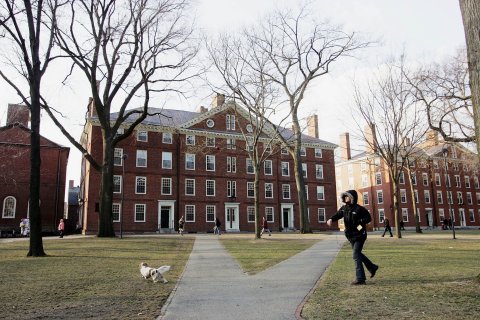
Unlike what happened to Lohse in the lower depths, the story of Robert Peace should have been an inspirational one, the sort of thing you tell inner-city middle-schoolers who need an extra shot of hope. Instead, it is a tragedy, one related with dexterity and compassion by his Yale classmate Jeff Hobbs.
The Short and Tragic Life of Robert Peace is a book no one ever thinks he will write and no one hopes he will ever have to. Hobbs had already written a well-regarded novel, The Tourists, and was living with his family in California when he got a Facebook message that his old Yale roommate had "passed away." The truth was much less anodyne than that, as Hobbs would discover during his meticulous investigation.
If the journey from Newark (where Peace went to school) to Yale is long, then the journey from Yale back to Newark is even longer. This is a tragic story in the classical sense, with the hero succumbing to a fatal flaw. That flaw, in this case, has to do with his father, Robert "Skeet" Douglas, a "witty leader of men" who dealt cocaine. He serenaded his young son at night with Grandmaster Flash lyrics and yearned for Rob to become "the Man," not, as a day care worker called him, "the Professor."
The lessons of fatherhood, however errant, proved short. In 1987, Skeet was arrested for the murder of two local women. Despite questions about the investigation, Skeet never cleared his name, dying in prison from cancer in 2006. Hobbs argues that Peace could not forget his father's imperative about street toughness and that, moreover, Skeet's imprisonment became a well of bottomless anger from which Robert too frequently drank.
Raised like so many young men of color by his mother, Jackie Peace, Robert proved a young man of exceptional intellectual abilities, living up to his old day care nickname. At the same time, he was smoking up and getting drunk by the time he was 13, both marijuana and alcohol easily procured because he was "Skeet's boy." Peace's whole life was a tug-of-war between his antipodal parents.
For a while, his mother seemed to be winning. She got him out of the toxic public schools and into St. Benedict's, where he played water polo and exceeded academically. Hobbs writes that "a collective perception formed of a wealthy, well-educated black kid from the suburbs who walked around acting like he was from the hood." This wasn't true, but it was telling.
He wanted badly to attend Johns Hopkins, but his mother didn't mail the materials in time, so he went to Yale. Hobbs is not unkind to the place, but nobody in New Haven should feel flattered. "The reaction to being here was to become idiots," he writes, recalling Lohse's complaints about Dartmouth. Hobbs further calculates that there were only about 30 students, in a class of well over a thousand, who came from urban poverty and therefore "could relate directly to Rob."
Now we move quickly, grimly, toward the conclusion of Rob's tragedy. He gravitated toward an off-campus house called the Weed Shack, which sounds about as appealing as Lohse's fraternity at Dartmouth. In smoking up and complaining about Yale, Hobbs argues, Peace found "a bridge between the world he'd come from and the world he found himself in." He could have remained an accomplished stoner, but it didn't turn out that way. A friend visiting from home, Flowy, observed that "people must smoke up at Yale." This in turn led Rob to the realization that "there was money to be made at Yale, which would carry none of the hazards that it carried on the streets." With the help of his New Jersey connections, he eventually became "one of the leading drug dealers on campus."
Despite what Hobbs calls his "general disdain of Yale and Yalies," Peace graduated with a degree in molecular biochemistry and biophysics. And yet he remained mystifyingly adrift. Perhaps feeling the dangerous undertow pull of his father's Newark, he went to Rio de Janeiro for several months after graduation. This proved a paradise, but only a temporary one. He returned to New Jersey and taught at St. Benedict's, his old school, at first very well, then less so. He stopped teaching and started working as a baggage handler for Continental Airlines at Newark-Liberty International Airport, seemingly "rebelling against all his celebrated establishments."
At this point, his tale converges with that of Lohse, who toiled as a restaurant busboy while at Dartmouth. Both men elicit wonderment from their colleagues, who cannot fathom why Ivy Leaguers would take menial jobs. What they can't fathom, also, is how little an Ivy League education had come to seem to both of them.
But then the tales of Lohse and Peace diverge again. For during this time, Peace had used his knowledge of chemistry to concoct his own marijuana strain, Sour Diesel, for which he became well known in the drug trade. Too well known, probably: Though Hobbs isn't clear on the details, he thinks that Peace may have come to the attention of the Double II Set Bloods, who "didn't look kindly on competition." Peace's own bush-league dealers may have thought he was a small enough pin to knock over. Whatever the case, on May 18, 2011, Hobbs writes, a car pulled up to the house on Smith Street where Peace grew his marijuana. Two or three men got out and entered the house in what may have been a robbery attempt that went quickly amiss. At the end of it, Peace lay dead in a pool of his own blood.
Hobbs is too smart and graceful a writer to make the story about himself any more than it needs to be, but in the wake of Peace's death, he allows himself to reflect on the Yale education that both he and Rob had been the recipients of. "Nobody, it seemed, was making the money he'd thought he would make, inhabiting the home he thought he would inhabit, doing the thing he'd thought he would do in life. Nobody was fulfilling the dreams harbored on graduation day."
He proceeds to ask a painfully rhetorical question: "Why did none of it resemble the great theater of life pitched to us grandiosely in college?" This could come across as selfish, since even a mediocre life, Yale or not, is better than a pine box in the New Jersey soil. But it doesn't. Peace died having failed to achieve the promise of a Yale education, "confused and upset that his life wasn't stacking up to be what he and everyone around him had always assumed it would." His case was extreme, but also extremely revealing.
There is another striking similarity between Confessions of an Ivy League Frat Boy and The Short and Tragic Life of Robert Peace: the absence of professors. Lohse went to a small college that, according to U.S. News & World Report, had the best undergraduate teaching in the nation; Peace to a world-class research university that managed to keep an impressive 6-to-1 faculty ratio. And yet neither had a professor who spoke to him, who pulled him aside, suggested over a beer that things were slipping out of hand. Both met with deans over disciplinary matters, Lohse for cocaine (possession of which precipitated his eventual separation from his fraternity) and Peace for weed. But that isn't quite the same.
I strongly suspect that Deresiewicz was the kind of professor—attentive, perceptive, kind—who took care to know his students. But that is a rarity, as he surely knows. He must know, too, that if the Ivy League is turning out imperfect citizens, then its imperfect teachers are to blame. He says as much, arguing that "professors don't care because they have no incentive to care." Forget the mentorship of lost souls like Lohse and Peace; some in the professoriate farm out the most basic aspects of instruction to already overworked adjuncts.
The crisis of teaching isn't new, but it deserves more attention, not to mention more of the blame. Back in 2011, a Harvard student named Alexander Heffner wrote a lengthy complaint for the U.S. News website clickbaitingly titled "A Harvard Education Isn't As Advertised," listing a litany of complaints. Among these was "minimal faculty-student interaction," with professors effectively inaccessible to the average student. Heffner, who said he'd gotten a superior education at his boarding school, told his readers that if they were lucky enough to be accepted, they should nevertheless skip Harvard Yard.
Deresiewicz says essentially the same thing, urging students to flee the Ivy League in favor of smaller colleges like Wesleyan, Reed and Grinnell, where the students are more passionate and receptive, less prone to unseemly résumé-padding. This is good advice, in keeping with trends highlighting colleges that might be a better investment. But it isn't likely to seriously dampen the fervid enthusiasm for the Ivy League, with seemingly every publication in the land churning out its own college rankings. Some kid may wisely choose to spend her four years in Gambier, Ohio, doing serious work at Kenyon, instead of drinking her way through the eating clubs of Princeton, or the fraternities of Dartmouth, or the finals club of Harvard. But she will be in the minority, and the recruiters of Silicon Valley and Wall Street have nothing to worry about.
Travel, briefly, to the website of any Ivy League school, and you will inevitably come under the maudlin assault of photographs of English professors engaged in passionate debate about Wallace Stevens around a seminar table with 12 riveted students, none of whom is looking at a smartphone; or maybe an enraptured botany professor leading a curious bunch through a bucolic flower field, each student precisely as curious as you'd expect an Ivy Leaguer to be. Maybe this happens, sometimes, but William Deresiewicz makes the case that it doesn't happen nearly enough. Otherwise, there would be no need for a confession from Andrew Lohse, nor a eulogy for Robert Peace.



